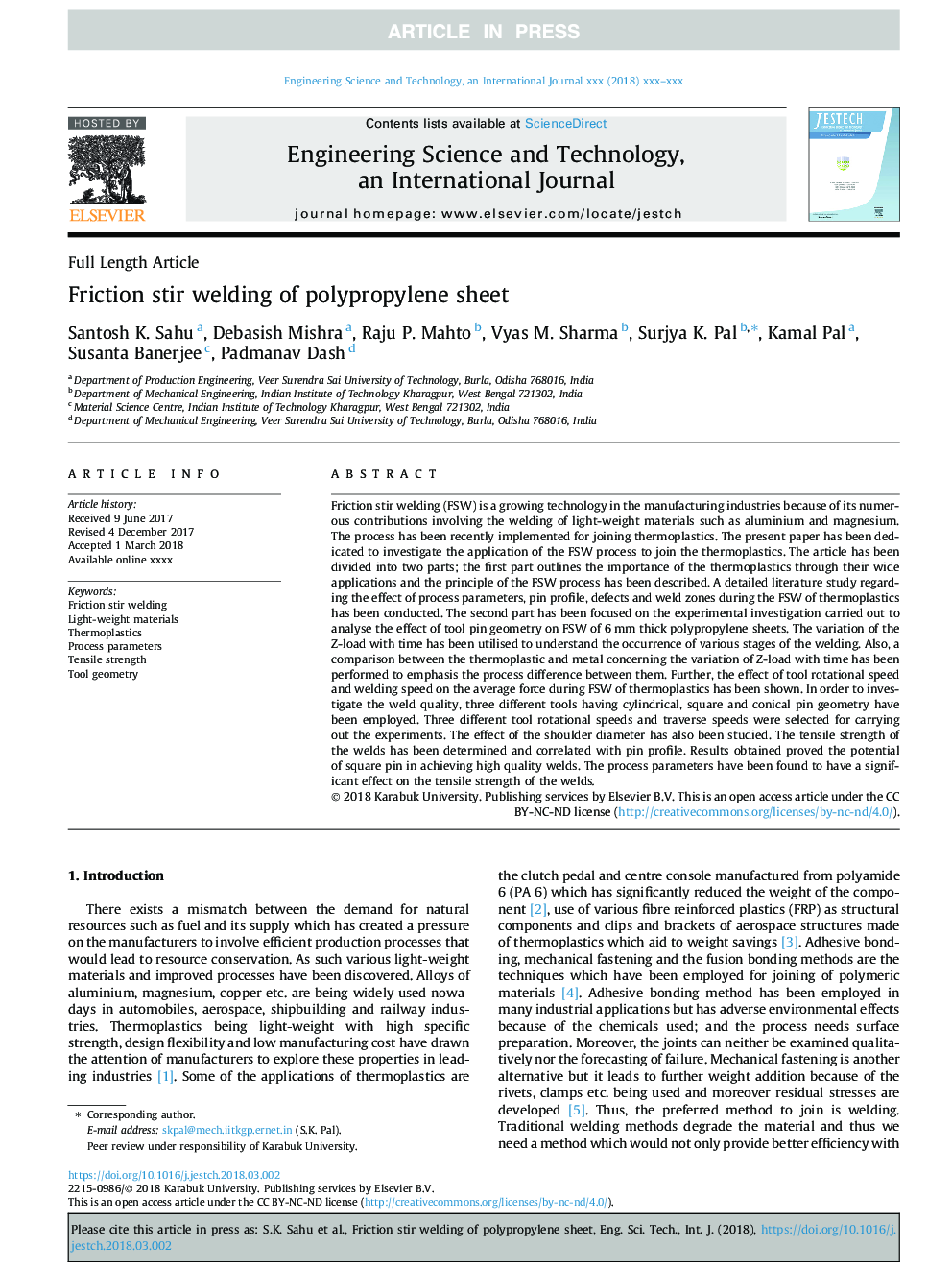| Article ID | Journal | Published Year | Pages | File Type |
|---|---|---|---|---|
| 6893668 | Engineering Science and Technology, an International Journal | 2018 | 10 Pages |
Abstract
Friction stir welding (FSW) is a growing technology in the manufacturing industries because of its numerous contributions involving the welding of light-weight materials such as aluminium and magnesium. The process has been recently implemented for joining thermoplastics. The present paper has been dedicated to investigate the application of the FSW process to join the thermoplastics. The article has been divided into two parts; the first part outlines the importance of the thermoplastics through their wide applications and the principle of the FSW process has been described. A detailed literature study regarding the effect of process parameters, pin profile, defects and weld zones during the FSW of thermoplastics has been conducted. The second part has been focused on the experimental investigation carried out to analyse the effect of tool pin geometry on FSW of 6â¯mm thick polypropylene sheets. The variation of the Z-load with time has been utilised to understand the occurrence of various stages of the welding. Also, a comparison between the thermoplastic and metal concerning the variation of Z-load with time has been performed to emphasis the process difference between them. Further, the effect of tool rotational speed and welding speed on the average force during FSW of thermoplastics has been shown. In order to investigate the weld quality, three different tools having cylindrical, square and conical pin geometry have been employed. Three different tool rotational speeds and traverse speeds were selected for carrying out the experiments. The effect of the shoulder diameter has also been studied. The tensile strength of the welds has been determined and correlated with pin profile. Results obtained proved the potential of square pin in achieving high quality welds. The process parameters have been found to have a significant effect on the tensile strength of the welds.
Related Topics
Physical Sciences and Engineering
Computer Science
Computer Science (General)
Authors
Santosh K. Sahu, Debasish Mishra, Raju P. Mahto, Vyas M. Sharma, Surjya K. Pal, Kamal Pal, Susanta Banerjee, Padmanav Dash,
